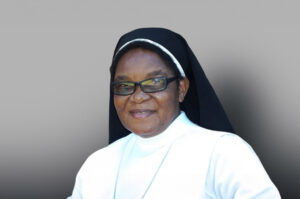Sister Priscilla’s journey began in 1994, amid the early, devastating years of the HIV/AIDS epidemic, which swept through her rural South African community with no resources to combat it. Witnessing how HIV-positive individuals were often shunned, abandoned by their families, and neglected by healthcare facilities, Sister Priscilla felt called to intervene. At a time when stigma around the disease was rampant, and many were left to die alone and in hiding, she began her mission to establish a sanctuary for those who had nowhere else to go. This led her to the founding of Holy Cross AIDS Hospice, which she originally envisioned as a safe haven where those suffering from illness could live out their final days with care and dignity.
Initially, the hospice focused on providing basic, compassionate care for the sick and dying. Holy Cross became known as a place where those who had been rejected could find solace, warmth, and a sense of family. Sister Priscilla’s dedication soon attracted others who shared her commitment, and together they worked to support individuals who had been left to fend for themselves. Many patients arrived at Holy Cross in desperate need, having been forced to take shelter in the nearby sugarcane fields, awaiting death alone. But through Sister Priscilla’s compassionate work, they found comfort, a clean bed, and the company of people who treated them with respect.
Over time, her mission expanded, evolving from a palliative care facility into a comprehensive community center addressing the full spectrum of issues faced by those affected by HIV/AIDS. Today, Holy Cross not only provides medical support but also focuses on the socioeconomic conditions perpetuating poverty and illness, transforming it into a multifaceted institution that reaches far beyond its initial purpose.
One of Sister Priscilla’s most impactful initiatives had been the training of women from local communities to serve as home-based caregivers. These women, many of whom came from low-income backgrounds, received practical training and were empowered to become essential healthcare workers, delivering support directly to homes across rural areas. Through this initiative, Sister Priscilla had trained hundreds of caregivers who, in turn, had assisted tens of thousands of individuals, many of whom lived in remote, underserved locations with limited access to formal healthcare services. This program became a cornerstone of the hospice’s community outreach, creating a ripple effect that not only improved healthcare access but also created economic opportunities for women who might otherwise have limited employment prospects.
Today, Holy Cross provides extensive support for families and orphaned children who have been affected by HIV/AIDS. With thousands of children losing one or both parents to the disease, Sister Priscilla recognized the need for comprehensive care that goes beyond basic healthcare. The hospice offers food security programs, psychological counseling, and even assistance with constructing homes, especially for child-headed households who struggle to provide for themselves. This work provides these children with a stable foundation, offering them a better chance to escape cycles of poverty and insecurity. Additionally, Sister Priscilla established early childhood development centers where children receive a head start on education and are given a safe environment to grow. Holy Cross also operates youth programs that focus on HIV/AIDS awareness, substance abuse prevention, and leadership skills, aiming to educate and empower young people to make healthier, more informed life choices.
One of the unique aspects of Holy Cross is its holistic approach to healthcare, incorporating traditional medicine and community-based practices into its programs. The hospice’s training center collaborates with South African universities, bringing together modern healthcare knowledge and traditional approaches to create complementary care that respects the culture of the communities served. In addition to standard medical treatments, the hospice offers alternative therapies that focus on emotional well-being, recognizing that true health involves treating the mind and spirit as well as the body.
Sister Priscilla had faced countless challenges throughout her career. Her work frequently met opposition, both from local leaders who viewed her initiatives as disruptive and, at times, from governmental bodies that had been slow to support her cause. The backlash included threats, acts of sabotage, and even the destruction of some of the hospice’s facilities. Despite these pressures, Sister Priscilla’s resolve only strengthened, as she continued to be an advocate for those without a voice. She developed a reputation for resilience and integrity, refusing to let obstacles deter her from providing life-saving support and a sense of belonging for her community. Her commitment inspired others to join her cause, transforming Holy Cross into a model of community-driven healthcare and social progress.
Her contributions had not gone unnoticed. Over the years, Sister Priscilla received numerous accolades, underscoring the impact she made. Among her most notable recognitions were her designation as South Africa’s National Woman of the Year in Social Services in 2003, and her selection as one of the country’s Most Influential Women in Business and Government in both 2010 and 2015. These honors reflected her unwavering dedication to advancing healthcare access, reducing stigma, and promoting social justice, as well as her profound effect on lives across South Africa.
Till the last day of her life, Sister Priscilla remained at the helm of Holy Cross AIDS Hospice, actively involved in both its daily operations and long-term strategic planning. Her role combined hands-on leadership with visionary direction, guiding the organization as it continued to expand and adapt to meet evolving community needs. Her goals for Holy Cross included broadening its educational initiatives, deepening partnerships with international organizations, and advocating for policy reforms that better serve underserved populations. Through her ongoing dedication, Sister Priscilla was not only shaping the future of Holy Cross but also laying a path for future generations, empowering communities to face their challenges with dignity and strength.
The information on this page was last updated on 12/02/2024 and was provided by the Luminary’s representative.



